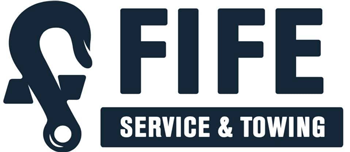- We dispatch 24-hours a day, 7 days a week, 365 days a year!
- Federal Way: (253) 292-6170
- Tacoma: (253) 922-8784
How Do You Use Electric Brakes When Towing?

When to Call Towing Service in Tacoma
April 25, 2025
Stuck in Tacoma? Get Fast, 24/7 Towing Service Now
August 15, 2025Mastering Control: Understanding Electric Brakes For Safe Towing
Towing can be an essential part of life, whether for recreational purposes or commercial operations. However, the added weight of a trailer significantly impacts a vehicle’s braking capabilities. This is where electric brakes become not just beneficial, but crucial for safety and control. Fife Service & Towing understands the intricacies of towing challenges and offers reliable towing services in Tacoma, ensuring your vehicle and trailer are handled with the utmost care. This guide will explore the ins and outs of electric brakes, detailing how they work and how to use them effectively for a smooth and secure towing experience.
The Fundamentals of Electric Trailer Brakes
Electric brakes are a sophisticated system designed to enhance the safety of towing by providing independent braking power to your trailer. Unlike surge brakes, which rely on the trailer pushing against the tow vehicle, electric brakes are electronically controlled, allowing for more precise and responsive braking.
The Role of the Brake Controller
At the heart of any electric braking system is the brake controller. This device is installed in the tow vehicle and acts as the brain, sensing when the driver applies the vehicle’s brakes and then sending a proportional electrical signal to the trailer’s electric brakes. This ensures that both the tow vehicle and the trailer slow down in unison, preventing dangerous pushing or pulling sensations. Fife Service & Towing’s expert tow truck operators are well-versed in handling vehicles equipped with various braking systems, ensuring a safe tow regardless of the setup.
Proportional versus Time-Delayed Controllers
There are two primary types of brake controllers. Proportional controllers are the most advanced and recommended type. These apply the trailer brakes with a force that is directly proportional to the braking effort of the tow vehicle. If you lightly tap the brakes, the trailer brakes lightly. If a hard stop is required, the trailer brakes with significant force. This dynamic response greatly improves stability and control, especially in emergency braking situations. In contrast, time-delayed controllers apply a predetermined amount of braking force to the trailer after a short, fixed delay once the tow vehicle’s brake pedal is pressed. While simpler and often less expensive, they are not as effective as proportional controllers because they do not adapt to varying braking intensities. This can lead to jerky stops or insufficient braking power in critical moments.
Components of the System
Beyond the brake controller, an electric braking system includes several key components on the trailer itself. Within the trailer’s brake drums, brake magnets are energized by the current from the brake controller. When activated, they adhere to the inside surface of the brake drum, engaging the brake shoes. Similar to traditional vehicle brakes, the brake drums and shoes spin with the wheels, and the shoes press against the inner surface of the drums when activated, creating friction to slow the trailer. A crucial element connecting the tow vehicle’s brake controller to the trailer’s electric brakes is the wiring harness, typically a 7-pin connector, which ensures seamless communication and power transfer. Understanding these components is vital for anyone engaging in towing services, whether for residential towing services or heavy duty towing of commercial vehicles.
Learn More About towing services in Tacoma
Why Electric Brakes Matter
The importance of electric brakes cannot be overstated when it comes to safe and efficient towing. They offer significant advantages over unbraked trailers or those relying solely on surge brakes, particularly when dealing with the towing challenges of larger or heavier loads.
Enhanced Safety and Control
The primary benefit of electric brakes is the dramatically improved control they offer. By allowing the trailer’s brakes to engage simultaneously with or just prior to the tow vehicle’s, they prevent the trailer from pushing the tow vehicle, which can lead to jackknifing or loss of control, especially on downhill grades or during sudden stops. This synchronized braking is crucial for maintaining stability and reducing stopping distances, making for a much safer towing experience. Fife Service & Towing, known for its reliable towing services, emphasizes the importance of properly functioning electric brakes for the safety of all drivers on the road.
Reduced Wear and Tear
With electric brakes, the braking effort is distributed between the tow vehicle and the trailer. This reduces the strain on the tow vehicle’s braking system, leading to less wear and tear on its brakes and components. This can translate into lower maintenance costs for your tow vehicle over time. When considering long-distance towing or frequent commercial towing, this benefit becomes even more significant.
Addressing Towing Challenges
While highly beneficial, electric brakes do present some considerations. Proper setup and adjustment are critical. An incorrectly adjusted gain setting can lead to the trailer brakes locking up, causing tire skidding and potential damage, or not braking effectively enough, leaving the tow vehicle to do too much work. Furthermore, ensuring the wiring is in excellent condition is paramount, as a faulty connection can render the system inoperable. For any emergency towing needs or roadside assistance, including issues with trailer brakes, Fife Service & Towing provides prompt and dependable towing assistance. Their fleet of towing vehicles includes well-maintained flatbeds and winch-equipped trucks, ensuring they have the proper equipment for any situation, from a flat tire to a more complex road recovery.
Stranded with a breakdown?
Don’t wait—book your towing service now, and let us handle the rest!
Setting Up and Using Electric Brakes
Properly setting up and using your electric brakes is key to a safe and enjoyable towing experience. It requires a bit of initial calibration and ongoing attention.
Installation and Wiring
First, ensure your tow vehicle is equipped with a compatible brake controller. Installation typically involves connecting the controller to the vehicle’s electrical system, including the brake light switch and a power source. A dedicated wiring harness is then run to the rear of the vehicle, terminating in a 7-pin connector that interfaces with the trailer. It is highly recommended to have this done by a qualified technician to ensure all connections are secure and correct, preventing potential electrical issues that could lead to a breakdown and necessitate professional towing services.
Adjusting the Gain Setting

The “gain” setting on your brake controller determines the amount of braking power sent to the trailer brakes. Adjusting this is perhaps the most critical step in optimizing your electric brake system. To set it up, you should find a flat, dry, and safe area with minimal traffic, such as a large, empty parking lot or a quiet neighborhood road. Start with a moderate gain setting, often around 6-7 on a scale of 1-10. Then, drive at a slow speed, around 20-25 mph. While maintaining speed, use the manual override lever or button on your brake controller to apply only the trailer brakes. If you do not feel the trailer braking effectively, or if the tow vehicle is doing most of the braking, you should increase the gain. However, if the trailer wheels lock up or you feel a jerky, sudden stop, the gain is too high, and you should reduce it. The goal is for the trailer to slow down noticeably without skidding. Once you have found a good manual override setting, you can test braking, typically using your vehicle’s foot pedal. The trailer should slow down smoothly and in sync with your tow vehicle, without any noticeable push or pull. Conditions like trailer weight, road surface (for instance, during heavy rain), and weather can affect braking performance, so be prepared to make minor adjustments to the gain as needed. For instances where you require a tow truck and need assistance with your trailer, remember that Fife Service & Towing offers comprehensive roadside services.
Using the Manual Override
The manual override feature on your brake controller is a valuable tool. It allows you to apply the trailer brakes independently of your tow vehicle’s brakes. If your trailer begins to sway, gently applying the manual override can often help to straighten it out. This slight braking action on the trailer creates tension that pulls it back into alignment. On long, steep downhill grades, using the manual override can help control the trailer’s speed and prevent your tow vehicle’s brakes from overheating, especially during rush-hour traffic or at busy intersections. In some situations, a very light application of the manual override just before applying your vehicle’s brakes can smooth out the stop.
Regular maintenance and inspections of your electric braking system are essential for maintaining consistent performance. This includes inspecting the wiring, connections, and the trailer’s brake components. If you find yourself in a bind, perhaps due to unexpected towing challenges or the need for emergency roadside services, Fife Service & Towing is a multi-generational towing company with a century of experience, ready to provide dependable towing services. Their professional truck operators treat your vehicle with the utmost care, offering affordable towing rates and ensuring quick response time across the entire Tacoma metro area, including surrounding cities.
Fife Service & Towing Ensures Safe Towing Service in Tacoma
Electric brakes are an indispensable safety feature for anyone involved in towing, from recreational enthusiasts to commercial operations. By understanding their functionality, the benefits they provide, and how to properly set and use them, you can significantly enhance the safety and control of your towing experience. For any towing service in Tacoma, whether it’s emergency roadside assistance, commercial towing, or simply needing reliable towing services, Fife Service & Towing stands as the trusted choice. With their extensive fleet of towing vehicles and a commitment to quality service, they ensure you receive prompt and professional assistance. For any questions or to schedule a service, contact Fife Service & Towing at (253) 292-6170 or toll-free at (800) 244-9528. Be sure to ask about their discounts for senior citizens and military personnel.
Stranded with a breakdown?
Don’t wait—book your towing service now, and let us handle the rest!
Frequently Asked Questions About Electric Brakes When Towing
How do electric brakes prevent trailer sway?
Electric brakes help prevent trailer sway by allowing you to apply braking force directly to the trailer. If you notice your trailer starting to sway, a gentle, brief application of the manual override on your brake controller can often help to correct it. This slight braking action on the trailer creates a drag that pulls it back into alignment with the tow vehicle, stabilizing the entire rig.
Can I install an electric brake controller myself?
While it is technically possible for a mechanically inclined individual to install an electric brake controller, it is highly recommended that it be professionally installed by a qualified technician. The installation involves critical electrical connections to your vehicle’s braking system and power source. Incorrect wiring can lead to system malfunctions, damage to your vehicle’s electrical system, or, more importantly, compromised braking performance, which can be a significant safety hazard. Professional installation ensures the system is correctly wired and calibrated for optimal performance.
What is “gain” on a brake controller, and how do I set it?
The “gain” setting on a brake controller determines the amount of braking power transmitted to your trailer’s electric brakes. It essentially controls how aggressively the trailer brakes engage relative to your tow vehicle’s braking. To set it, find a safe, flat, and open area. Drive at a slow speed (around 20-25 mph) and use the manual override lever on your controller to apply only the trailer brakes. Adjust the gain up or down until you feel the trailer slowing noticeably without its wheels locking up. The goal is for the trailer to brake in sync with your tow vehicle, neither pushing nor pulling excessively.
How often should I have my electric trailer brakes inspected?
It is recommended to have your electric trailer brakes inspected annually or every 10,000 to 12,000 miles, whichever comes first. Regular inspections are crucial because trailer brakes are exposed to various elements and wear differently than vehicle brakes. Inspections should include checking the condition of the brake magnets, drums, shoes, wiring, and all connections. If you notice any changes in braking performance, unusual noises, or have been towing in harsh conditions, it is wise to have them checked sooner.
What if my electric brakes stop working while I’m towing?
If your electric brakes stop working while towing, the first thing to do is remain calm and safely pull over to the side of the road as soon as possible. Your tow vehicle’s brakes will still function, but with the added weight of the trailer, stopping distances will be significantly increased. Avoid sudden movements or hard braking. Once safely stopped, check the wiring connections between your tow vehicle and trailer for any disconnections or visible damage. Also, check the fuse for your brake controller. If you cannot identify and fix the issue, do not continue towing. Call for professional towing service in Tacoma, such as Fife Service & Towing, for assistance. The cost of a tow varies and is based on factors such as distance, vehicle type, and current economic conditions; however, your safety is paramount.



